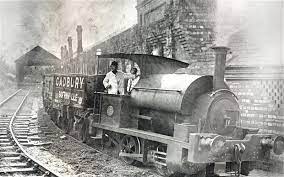
1: A steam Engine train; Source: https://mcuhistory.tumblr.com/post/78530156838/technology-was-booming-within-the-british-empire
Prior to the 19th century, European states started to enlarge; nevertheless, it wasn’t until the industrial revolution in the middle of the century that European expansionism picked up speed. The industrial revolution, which was the result of scientific and engineering advancements, was the driving force behind this expansionism, but it was also fueled by a rapidly expanding population, which raised the demand for land, resources, and food. There are countless occasions where British history might have unfolded differently if technology hadn’t been invented.
1: Invention of steam engines and colonization
The invention of steam power was one of the most famous and significant technological developments. Regarding “penetration and conquest of non-Western territories,” nations benefited greatly from using steamships. They made it possible for soldiers and merchants to go through rivers that would have been highly challenging for earlier sailing boats and battleships to navigate.
The East India Company’s deployment of steamships in “the first large-scale river battle in modern history… against the Kingdom of Burma” illustrates their potential. These ships, which could travel 500 miles into Burma, were a crucial part of winning the war and did it more quickly than they would have without them.
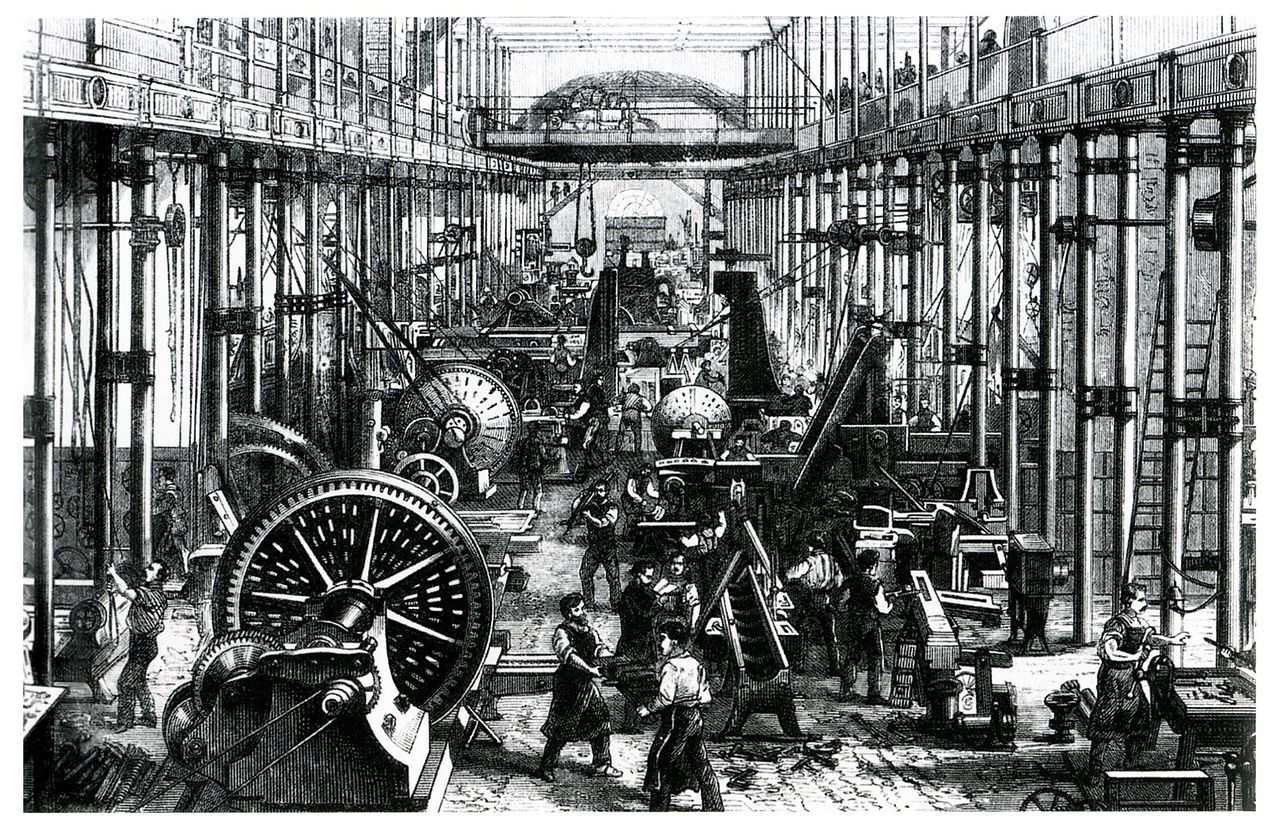
Foundation of British technology; Source: http://foundations.uwgb.org/cause-and-effect/
2: Industrialization
The industrialization of Europe significantly impacted the development of a global economy. A surge in international trade resulted from numerous European nations’ development as big exporters of products during the 19th century. New trade and finance policies and the transportation revolution resulted from this. The gold standard was fixed for currencies, making them more secure.
“World trade increased by roughly 600% between 1850 and 1914,” owing to the expansion of European agriculture, textile factories, and industry. Raw materials and resources had to be available for all of this to be possible.
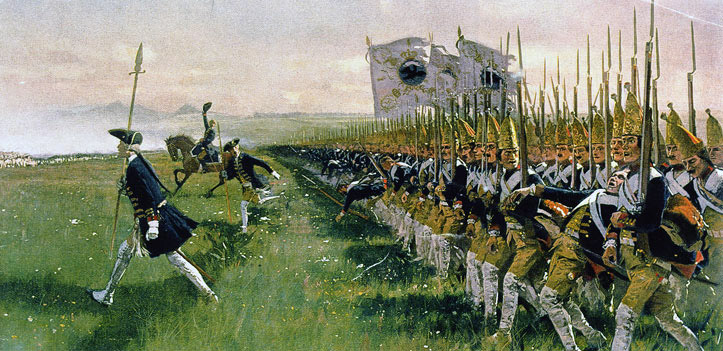
Modern Military Warfar; Source: https://en.wikipedia.org/wiki/Early_modern_warfare
3: Military Technology
A key element in the successful colonial expansion in the 19th century was the development of military technology. Once European countries realized the potential of steamships, they modified them by creating iron boats rather than wooden ones to increase protection and durability.
They increased their destructive power by adding mounted weapons and rocket launchers with swivel capabilities to the decks. The British utilized them against a weaker Chinese navy in the Opium War of 1840, which was their first significant employment.
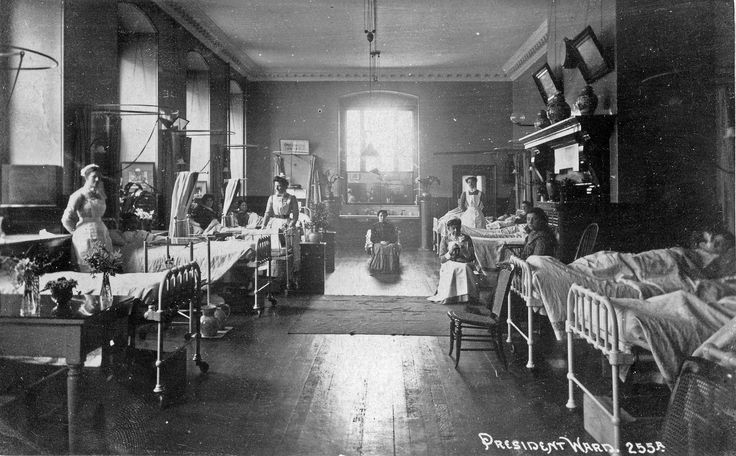
An old British hospital in the 1800s; Source: https://www.pinterest.com/pin/creepy-photos-of-early-20th-century-british-hospitals-flashbak–350084571013469583/
4: Medicine
Since none of the European troops were immune to African diseases like malaria during the “Scramble for Africa,” medicine proved to be a handy tool for colonial expansion. Malaria frequently claimed soldiers’ lives before encountering an opponent, hindering European attempts to colonize Africa. That is, up until the development of quinine prophylaxis.
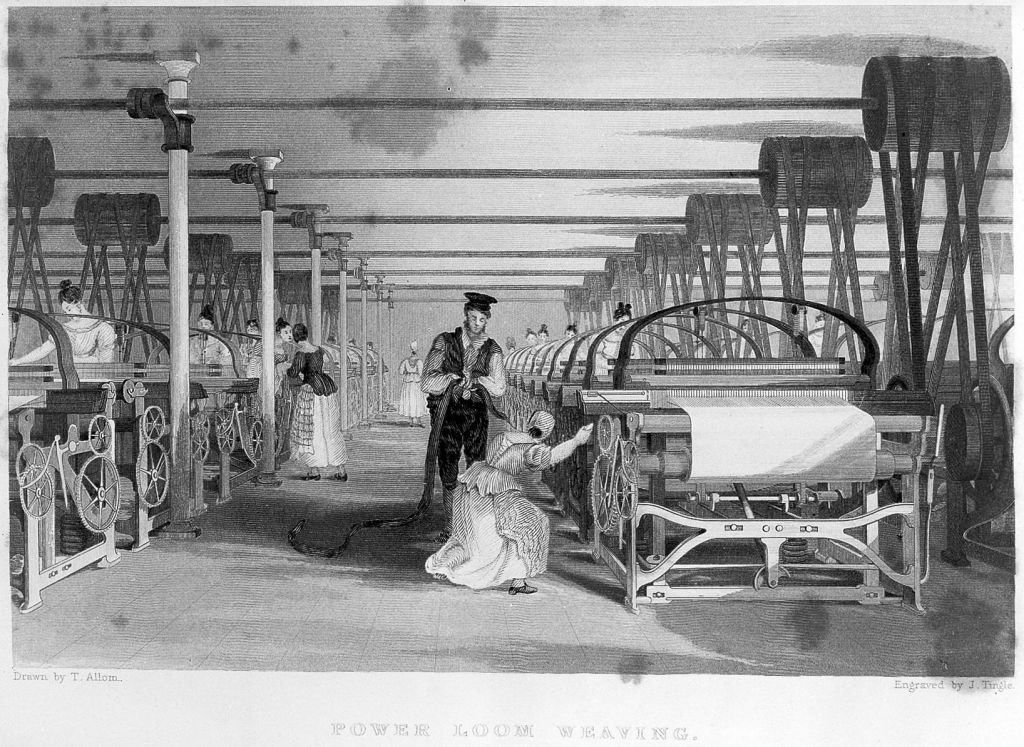
Textile Manufacturing In Britain; Source: https://www.ikfoundation.org/itextilis/textile-manufacturing-in-britain.html
5: Textile
Between 1750 and 1850, the manufacture of textiles, mainly cotton, was essential to Britain’s economic growth. Historians frequently use those years to define the Industrial Revolution. During this time, cotton was produced changed from a small-scale cottage industry where rural folks did the spinning and weaving in their homes to a massive, mechanized factory-based enterprise. The spinning jenny, spinning mule, and power loom were some of the first technological innovations contributing to the productivity boom.
You Might Like: British Technologies Used in World War II, The Top 7 Inventions that Scotland Gave the World
